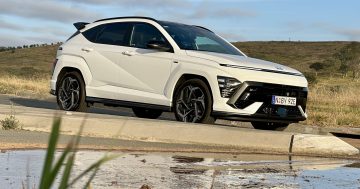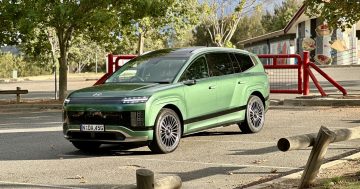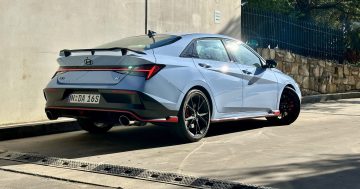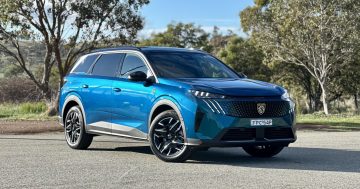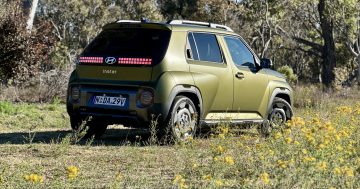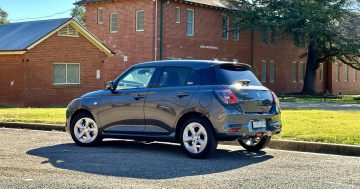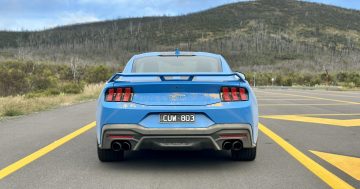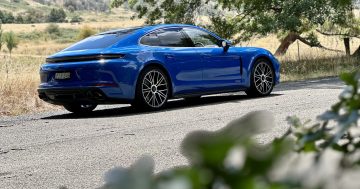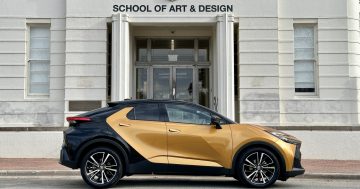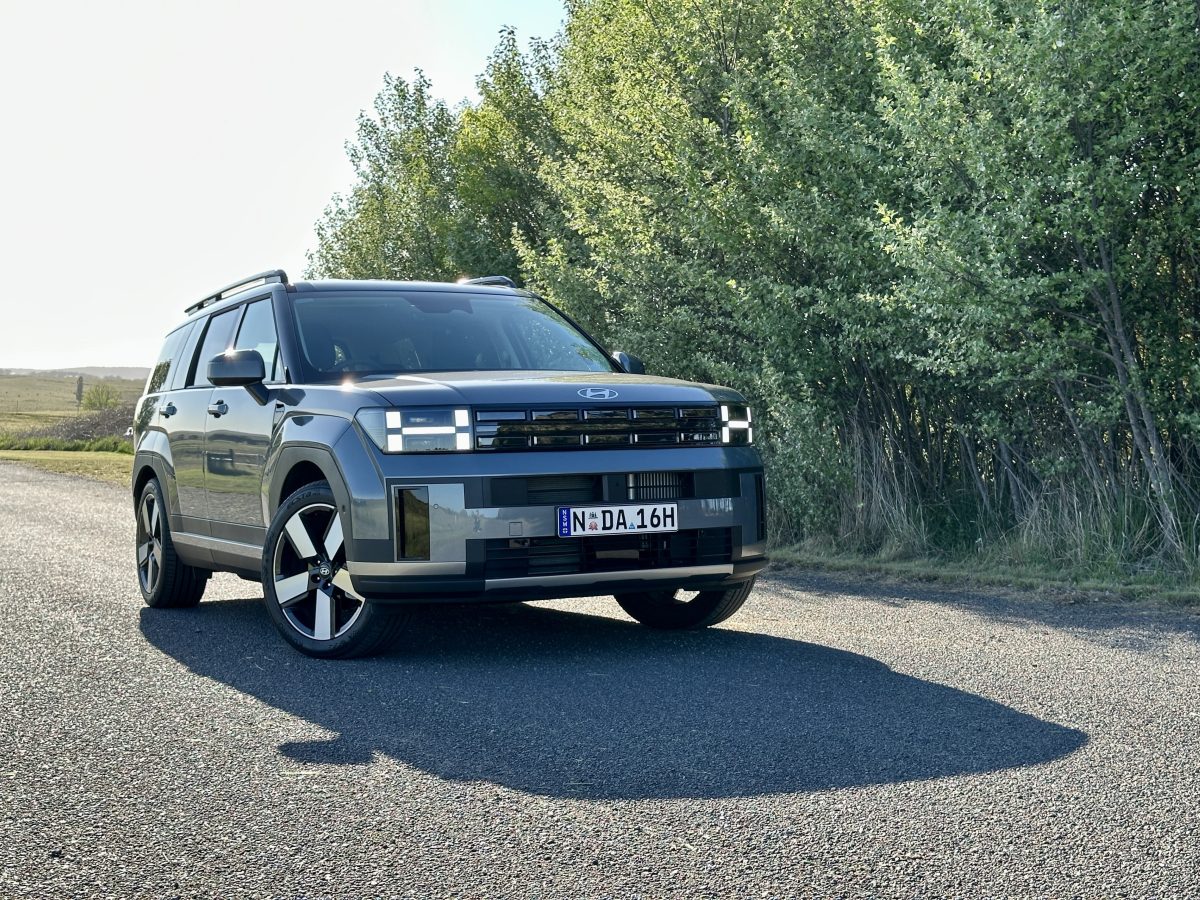
‘Pebble Blue’ is a $695 paint option for the Hyundai Santa Fe. Photo: James Coleman.
The new Hyundai Santa Fe might just be the best family car ever.
When the kids are bored at home, just send them out to the garage to see how many ‘H’ motifs they can find. Look closely and you’ll find them in the headlights, the rear lights, the air-conditioning vents and seat design. It’s like all the Easter egg hunts at once.
Even the four dots on the steering wheel form Morse code for ‘H’. My OCD was overwhelmed with joy upon learning this.
Our neighbours, with their three kids, own an older version of the Sante Fe. And even without all the Hs, there’s good reason. It’s a stylish, respectable, seven-seat family SUV. But I’m not sure what they thought of the small office building parked on our driveway this week.
The 1980s have called, and they’re back, baby.
The new Santa Fe has gone full Range Rover for 2024. Big and boxy. It does look good, and certainly people with more letters after their name than me awarded it the winning title in the 2024 Australian Good Design Awards ‘Automotive and Transport’ category.
But then you get around to the back and realise the year is 1984, and you’re in Italy, behind a Fiat Panda.
Hyundai’s designers said the rear lights had to be mounted as low as they were to make room for the enormous gas struts that power the tailgate. But Isambard Brunel surmounted bigger engineering challenges without making the SS Great Eastern look wrong.


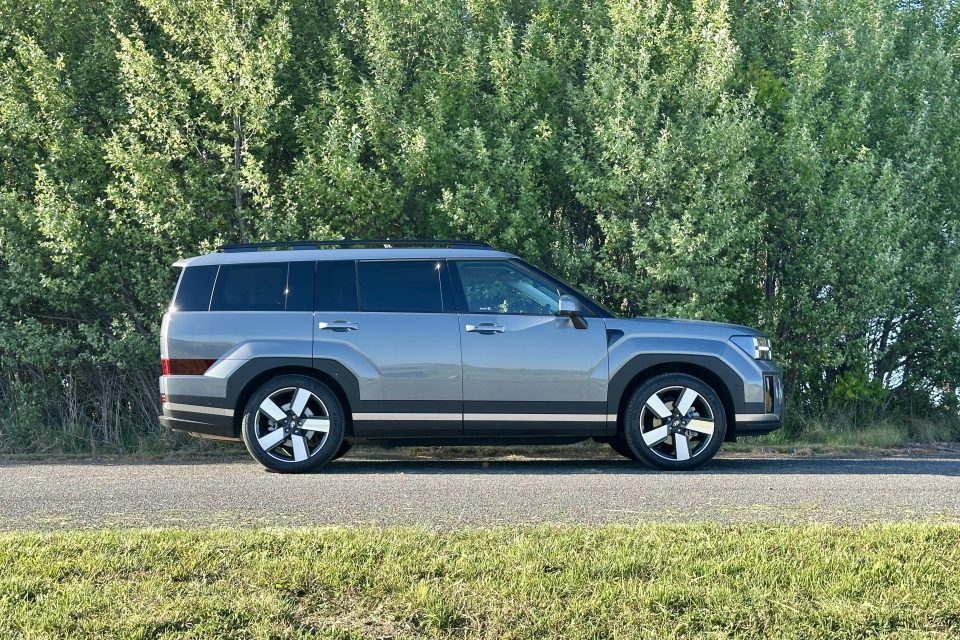
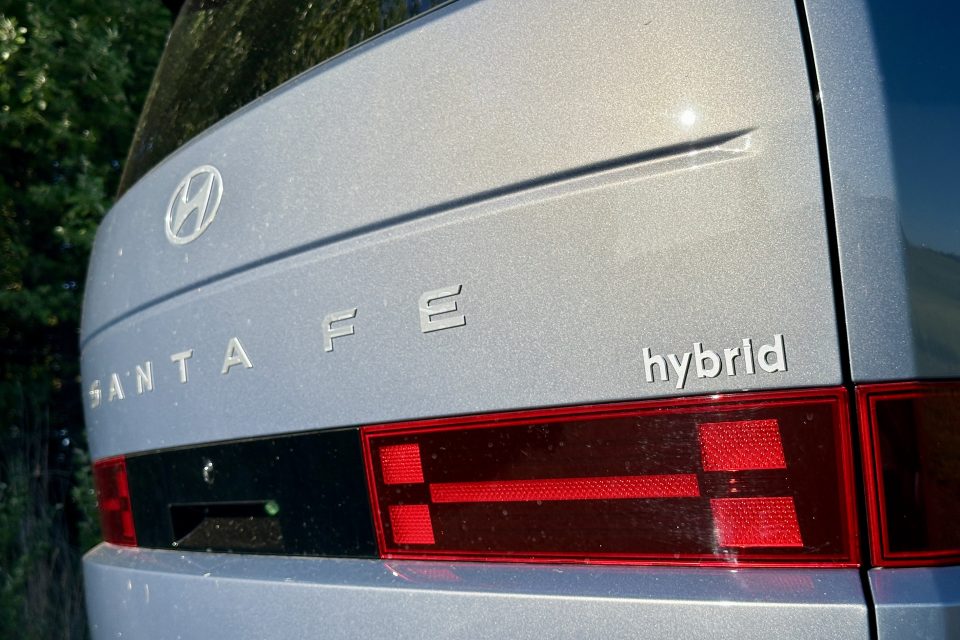
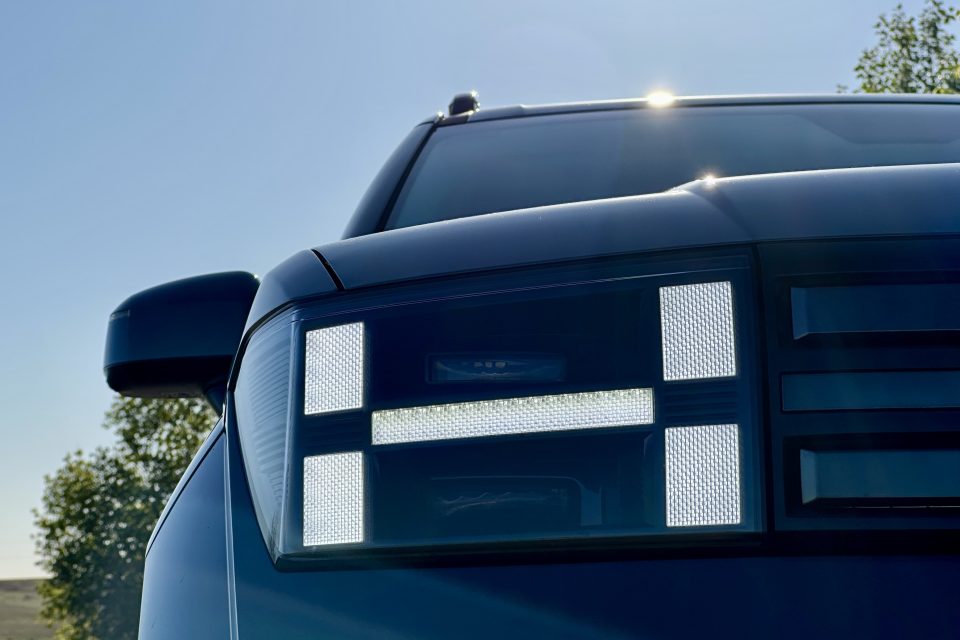
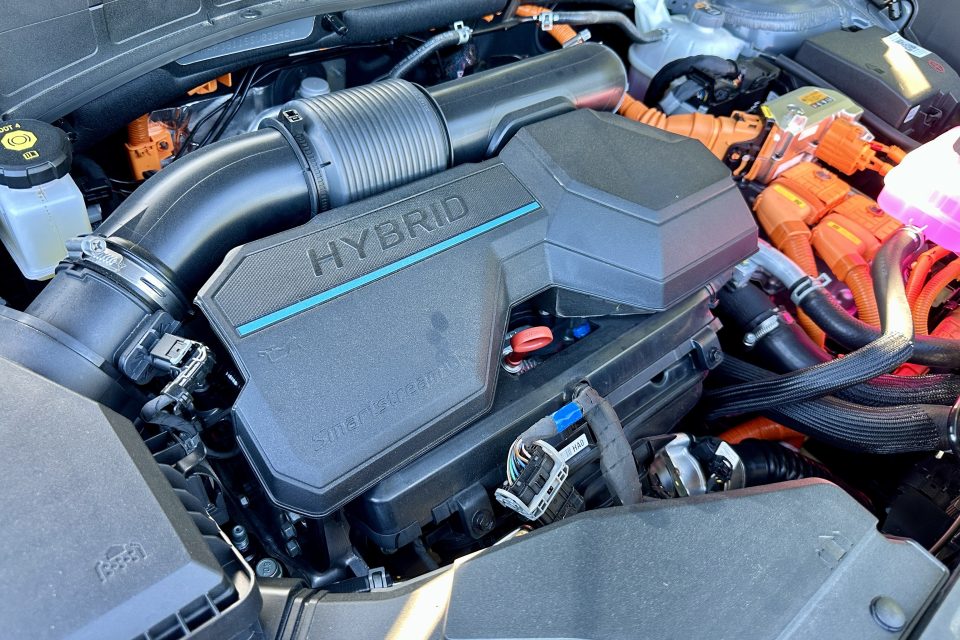


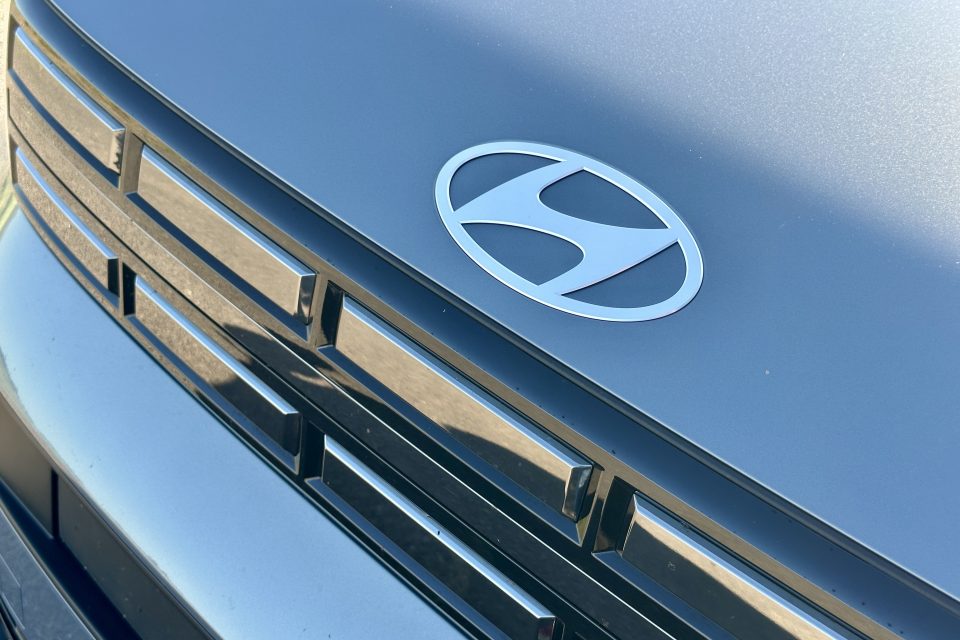
Inside, where you can’t see this, the new shape does pay off.
There are cubby holes and cupholders and phone charging ports everywhere, and – a particularly loveable thing about the recent Hyundai and Kia models – roll-up blinds for the rear windows.
There’s also a ‘quiet mode’ which cuts out all but the front Bose speakers so you can blast your true crime podcasts without polluting your children. Unfortunately, it doesn’t work the other way, so parents will still have to be subjected to ‘Hot Potato’ at max.
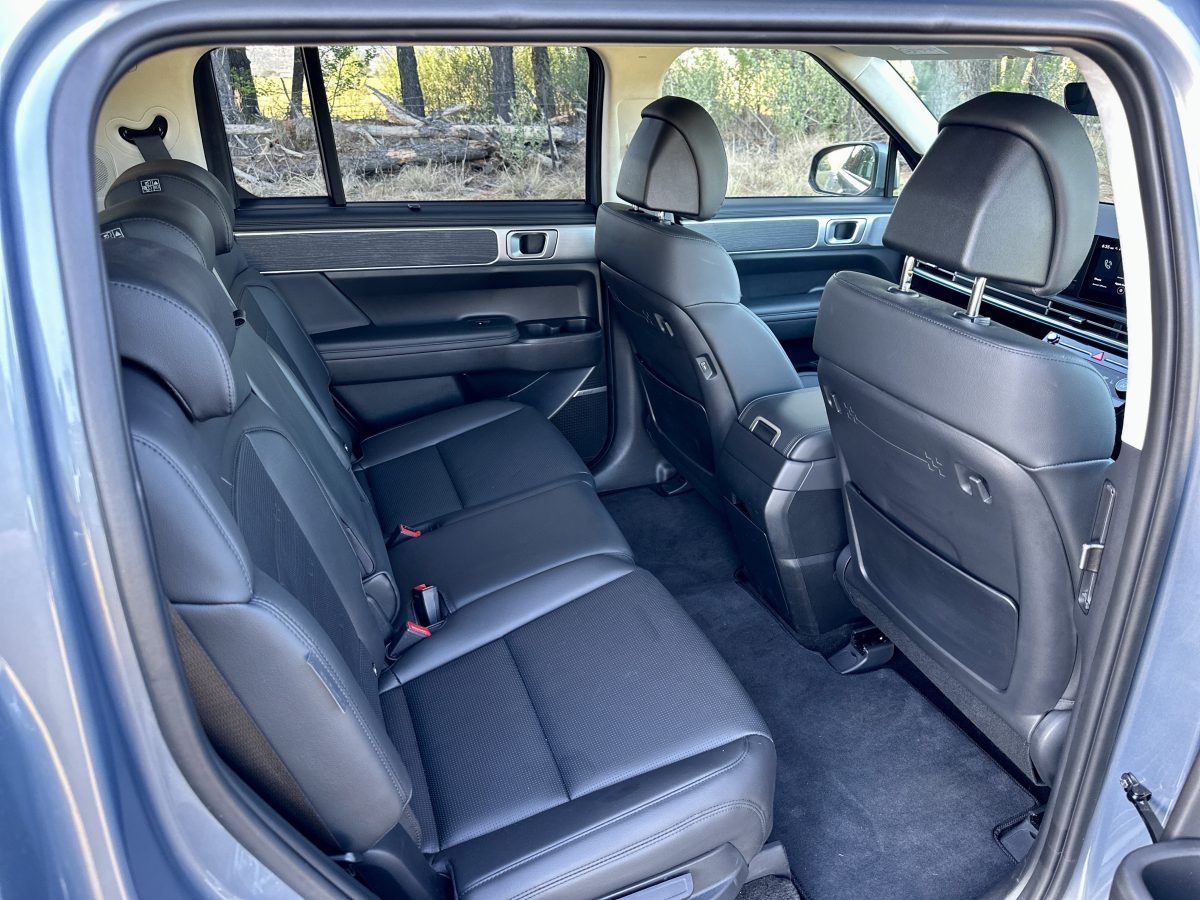
Everything inside is sturdy, stylish and very well thought out. Photo: James Coleman.
Unlike a lot of seven-seaters, there’s still some useful space with the two rear-most seats deployed.
Underneath, the Santa Fe uses a new 1.6-litre turbocharged hybrid system with a claimed fuel consumption figure of 5.6 litres per 100 km. And try as I might with three hours on the highway and a commute to and from work every day, the tank still lasted more than a week.
It doesn’t feel monstrous to drive either. Hyundai has done an impressive job sheltering you from the outside elements, almost to the point it’s like you’re inside a fridge. You put your foot down and there’s the distant hum of the compressor.
As a result, it fools you into thinking it’s not that quick. But in no time at all you’ll be looking down and realising you’re already at the speed limit.
The brake comes with ‘Normal’ and ‘Sport’ settings, but keep it in ‘Sport’ if you don’t want it to feel like you’re pressing into a sponge. That said, the automatic collision avoidance system is always very eager to keep you out of trouble.
There are also modes for ‘Snow’, ‘Mud’ and ‘Sand’ but I didn’t use these, and neither – let’s be frank – will you.


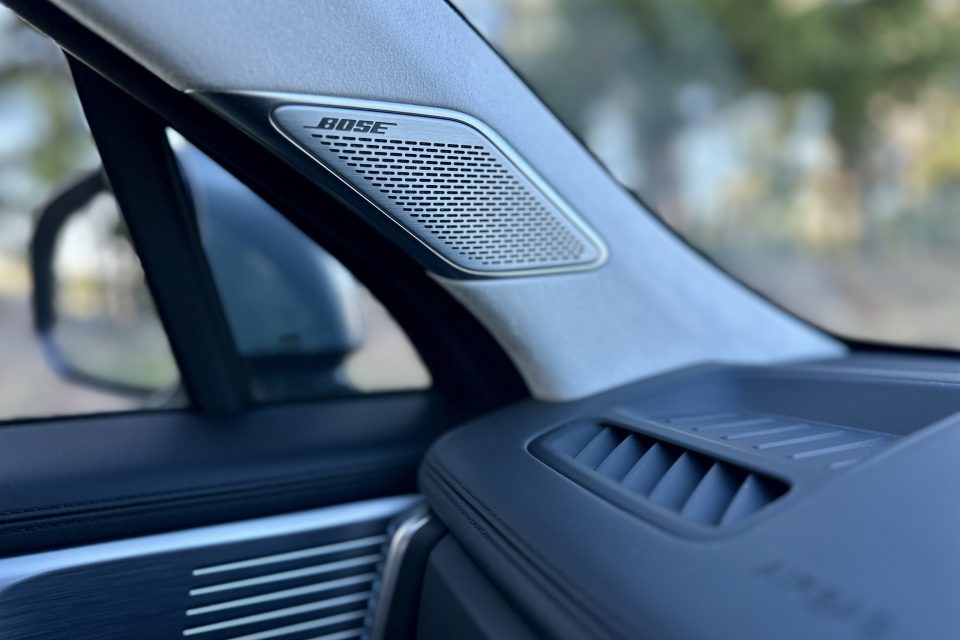
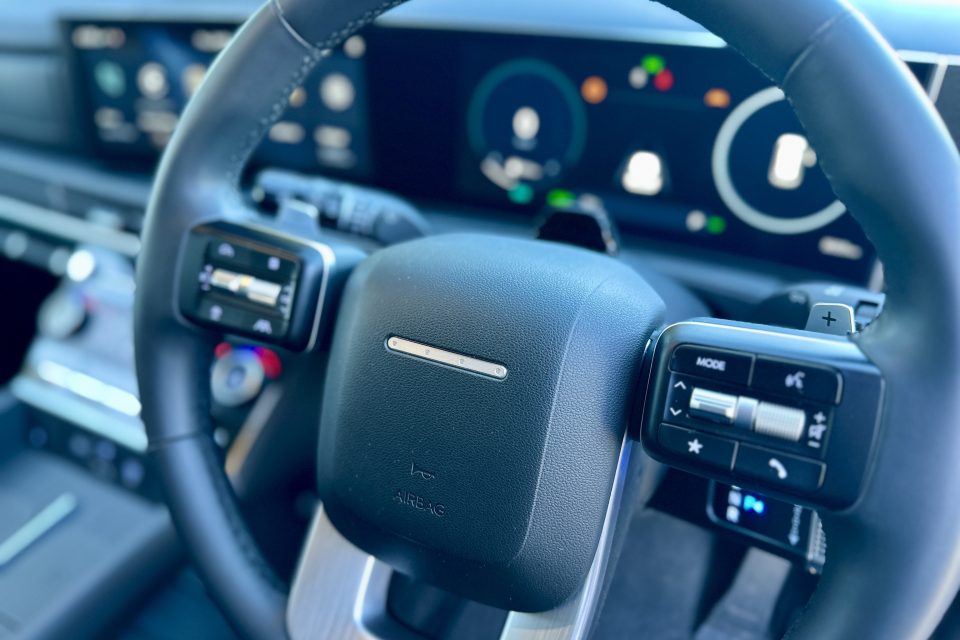

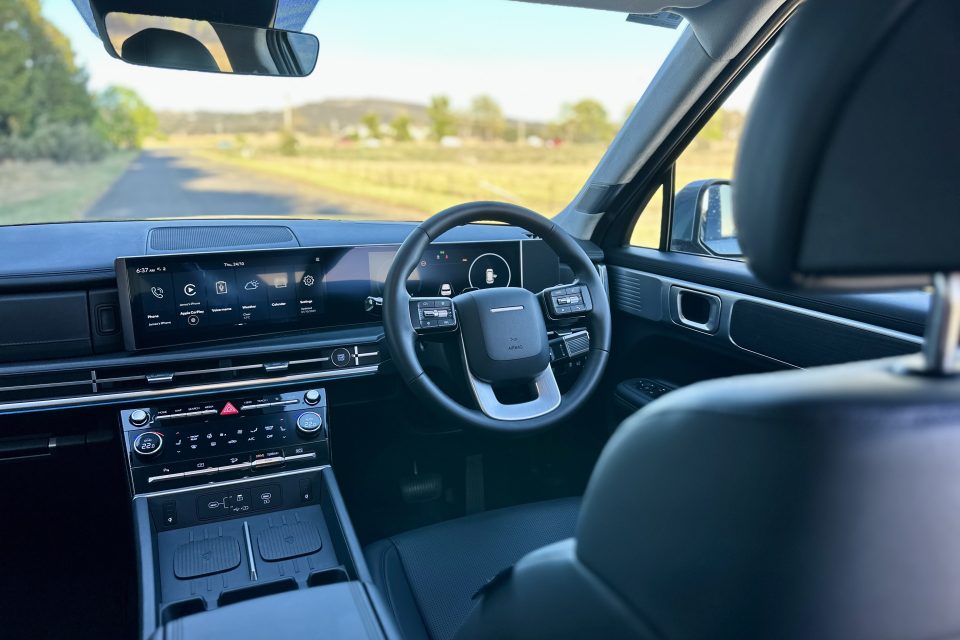

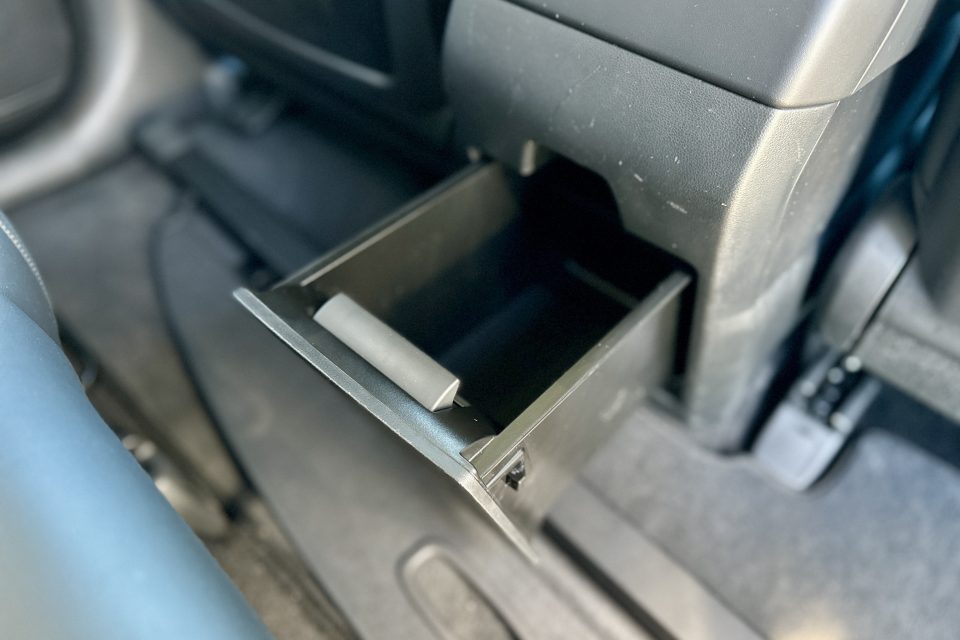

In the end, the only part about the new Santa Fe that will ruin the day will be when you get out of it.
A lot of cars lock themselves once you’re underway to prevent crims from breaking and entering when you’re stopped at traffic lights. But once you’ve stopped, and put the gearbox in ‘P’, and turned off the engine, and opened the driver’s door, it’s perfectly foreseeable you might like to open one of the other doors. So why, every time, did I have to get the key out and press the unlock button to let the kids out?
Not that this really matters. There’s plenty for them to do inside.
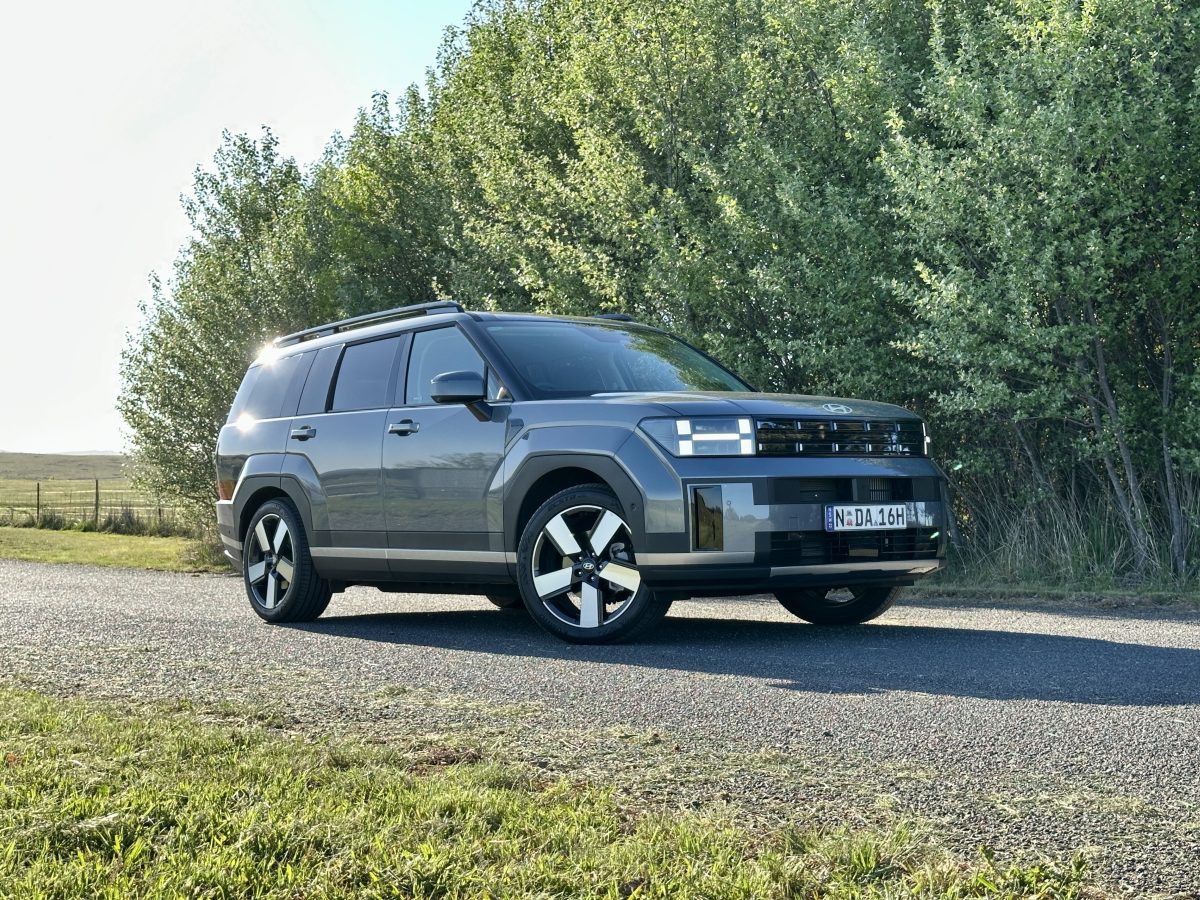
Spot the ‘H’. Photo: James Coleman.
2024 Hyundai Santa Fe Hybrid Elite
- $65,000 (plus driveaway costs)
- 1.6-litre four-cylinder turbo petrol-electric hybrid, 172 kW / 367 Nm (combined)
- 6-speed automatic, all-wheel drive (AWD)
- 5.6 litres per 100 km claimed fuel consumption, 91 RON
- 2105 kg
- Not yet rated for safety.
Thanks to Hyundai Australia for providing this car for testing. Visit Wagga Motors for more information.
Original Article published by James Coleman on Riotact.







